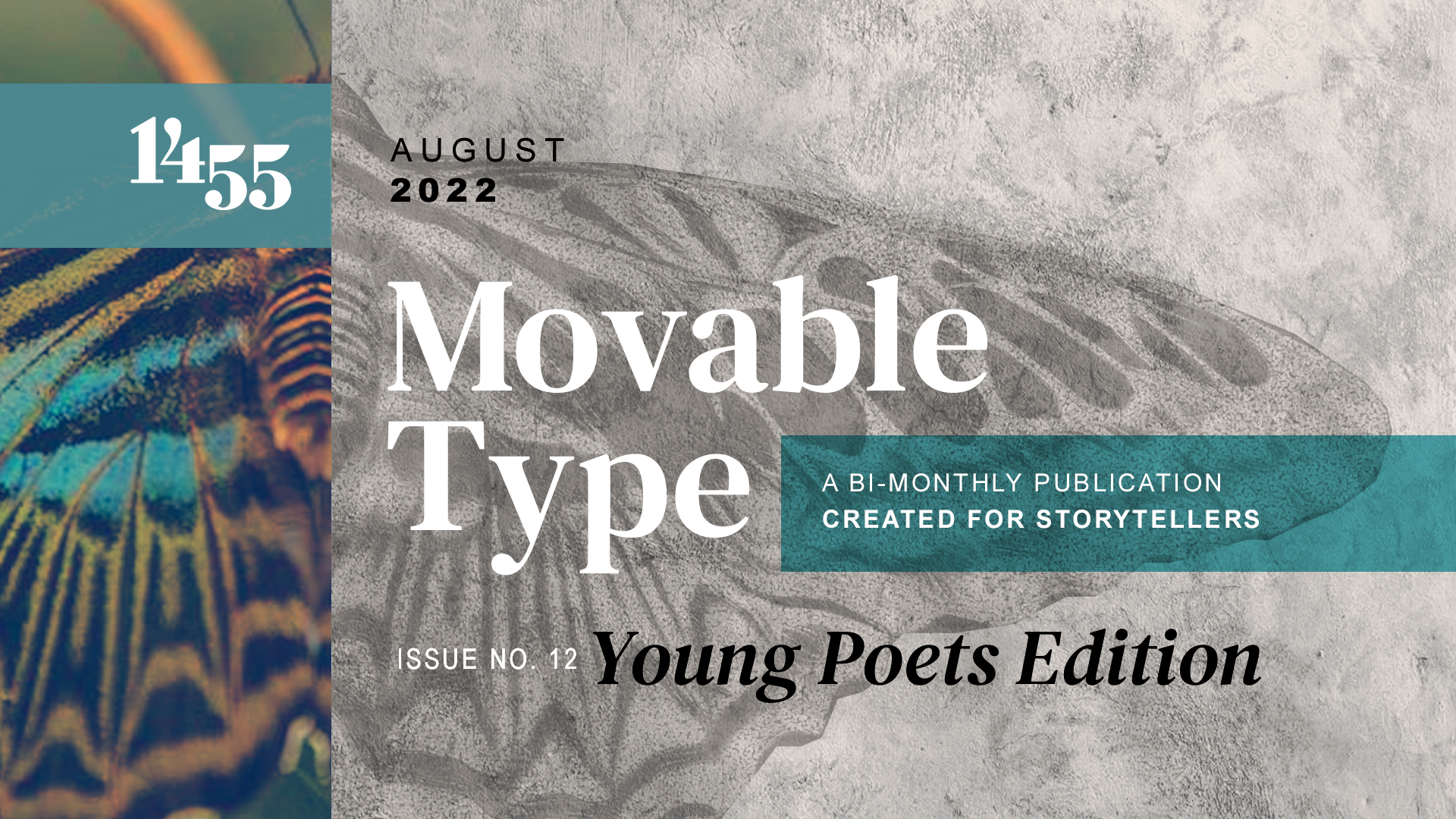DIRECTOR’S NOTE
Having completed another successful Young Poets Contest as part of 1455’s fourth annual Summer Fest, I can confirm two things: the contest attracts more diversity and talent each cycle, and choosing grand prize winners becomes more difficult. It’s a labor of love, and I’m grateful to all the poets from America and beyond for sharing their writing.
As a reminder, the theme for this year’s contest was Freedom, and the guidelines requested the poems to reflect on or react to the contemporary sociopolitical and cultural environment (including but not limited to #BLM, #MeToo, COVID, etc.); every poem that made the final cut successfully explored the guidelines, but the diverse and provocative variations on these themes were extraordinary. Just like previous years, some of the poems seemed pieced together by newspaper headlines; others invoked family histories (the kinds found in photo albums and especially the kinds kept secret or spoken about for the first time), and there were ingenious, if inevitable references to science, politics, ethnicity, anger, and shame.
Like the years preceding it, 2022 has been a period of disruption, polarity, anger, and confusion. During dark and complicated times, we look to our artists to find grace, beauty, and witness borne. As always, we hear our politicians and self-appointed spokespersons eager to opine (but seldom enlighten or console), and as ever, it’s our poets, whom Percy Bysshe Shelley famously declared “unacknowledged legislators of the world,” who best explain and interrogate our lives.
The Young Poet’s Contest winners gathered virtually to read their work during 1455’s Summer Festival last month. We encourage you to watch the recorded reading below to experience the winning poems read by their poets.
1455’s mission is to celebrate creativity and build community. We do this by encouraging storytellers, and poets are anything but unacknowledged in our corner of the world. Indeed, all our free programming is offered with the goal of connecting worthy storytellers and diverse audiences. If we’re able to showcase under-represented artists, all the better. And being able to support young writers is a critical and inextricable part of this process. We are proud and honored to shine a light on voices we can learn from, and as is so often the case, we stand to learn more from our young minds than they do from us.
Be well,
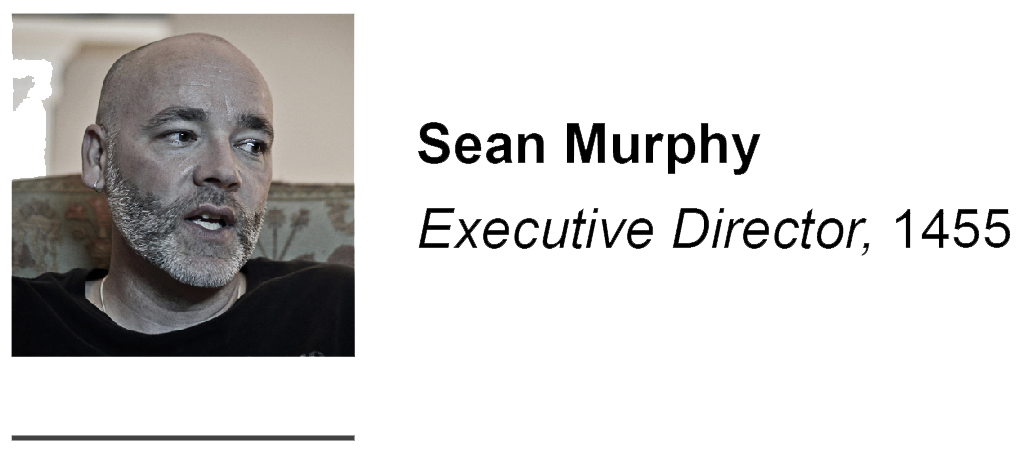
Sean Murphy has been publishing fiction, poetry, reviews (of music, movie, book, food), and essays on the technology industry for almost twenty years. Learn more about his work at seanmurphy.net
Co-Judge Remarks
Our young poet’s contest theme this summer was freedom. Freedom is strange in poetry; it often comes from constraint, from limit. Often, it’s only through a standardized form that we find out how flexible our language really is. The young poets we read this summer played with the limits of their freedom. They found poems in redactions of government documents, in couplets, in blocks of prose. They stretched across the page, separated lines with white space, felt the limits of a line’s shape. If a poetic thought is a concentrated observation, an image of a moment, then form is its frame. The frame makes the image possible, important, free to exist. It was so wonderful to read young poets who understood that push and pull of poetry.
In our winning poems, we read about the freedom of connection, even with someone imaginary. We read about freedom as a redaction of exclusion. We read about the freedom to act like your desired self, and the freedom to create a mythology of yourself. And, at the poetry reading during the 1455 Literary Festival, we all felt the freedom of having a poetry community.
There is something so powerful, as a young poet, in hearing your words heard by others. The words are freed from the page, freed into space. Hearing the young poets voices’ at the 1455 Festival reading is absolutely my favorite part of our contest. After having their words swirling around in my brain for so long, to hear them released into the world is, well, magic.
I sincerely hope you enjoy reading these poems as much as I have.
Best reading,

Maia Siegel’s writing appears in The Brooklyn Rail, The Bennington Review, Poetry London, Rattle, and elsewhere. She attends Yale University.
2022 Young Poets Contest Winners
GRAND PRIZE
Category 1: Ages 13-18
“It’s 2020 and I See Henry David Thoreau at a Fair-Trade Coffee Shop”
2ND PLACE
Category 2: Ages 19-25
“when a cis person asks me if trans people are birthed from tenderness or violence, i tell them”
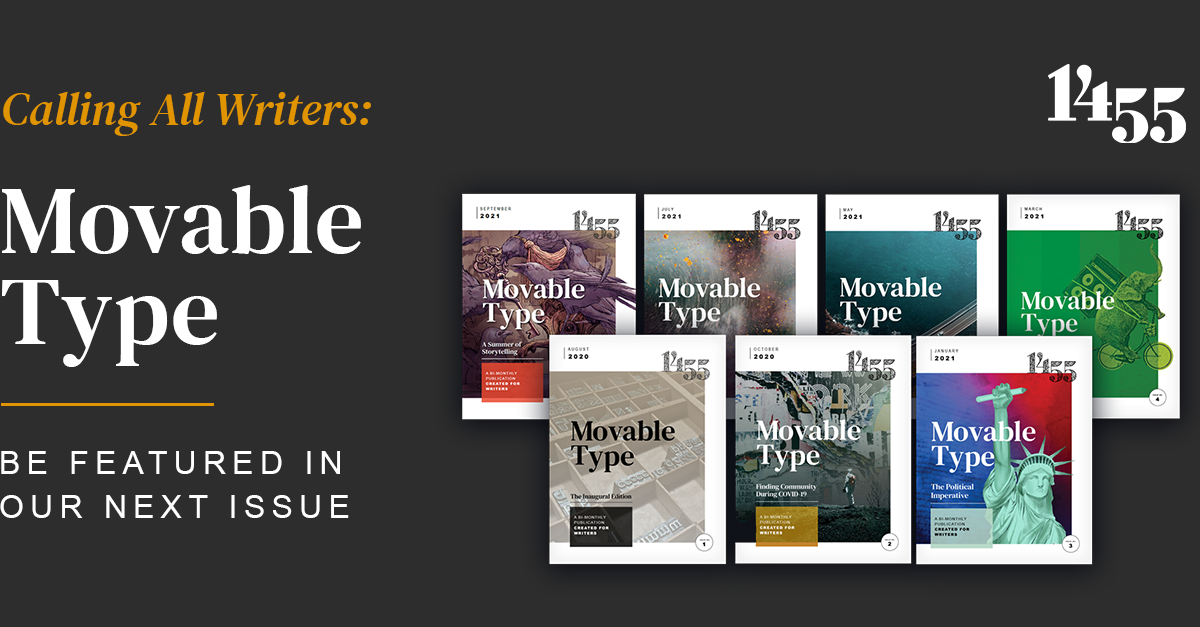
CALL FOR SUBMISSIONS
1455 welcomes submissions for the next issues of Movable Type. We invite you to send 1-3 poems, flash fiction (up to 1K words), personal essay / memoir (up to 2K words), artwork, musical performances on video, recorded discussions, or other storytelling mediums with the subject “MOVABLE TYPE SUBMISSION” to info@1455litarts.org.
We are also accepting early submissions for upcoming themes in 2022:
- OCTOBER – Storyteller Showcase: The Best of SummerFest
- DECEMBER – Diversity & Beauty
EXPLORE MORE OF 1455
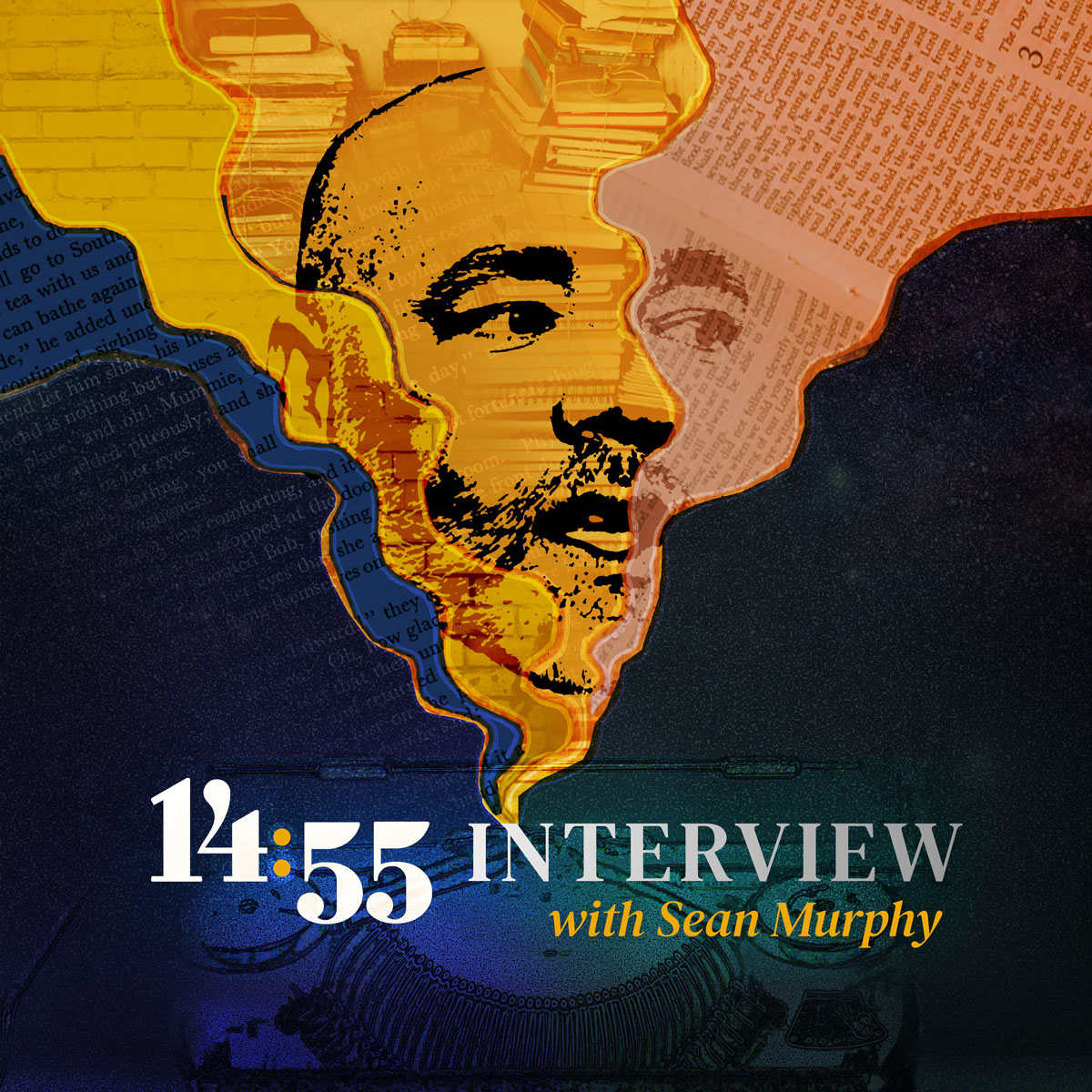
Get a glimpse into what makes your favorite creative types tick—from the writers who inspired them, to the weird habits that accompany the practice of writing, their favorite places in the world, and more. Check out this insightful series on our YouTube channel.

1455’s Moveable Feast is a new initiative bringing together directors of four distinct writing workshops based in different parts of the world who will offer writers a resource to find their community. Moveable Feast provides sponsored venues that curate readings, author talks, live interviews with writers, and other artistic events. Read more about Moveable Feast here.
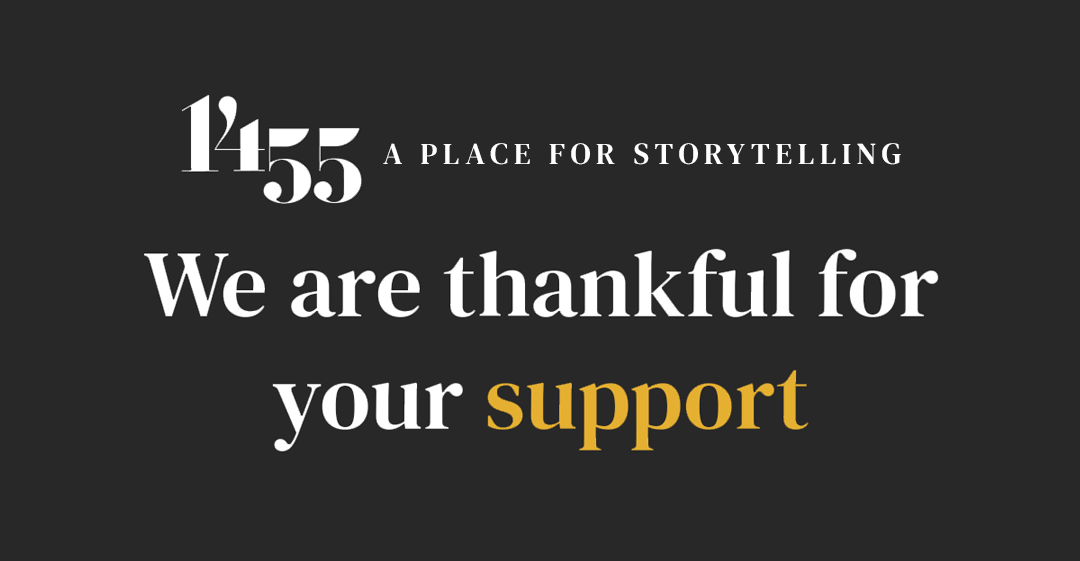
Your gift of any amount will have a significant impact on our ability to reach a diverse and expansive community and help us to continue to build a global community of writers, artists, creatives, entrepreneurs, thinkers, and literary fans. Make a contribution at 1455litars.org/support.


